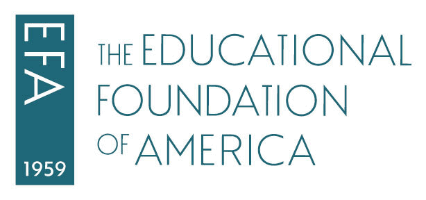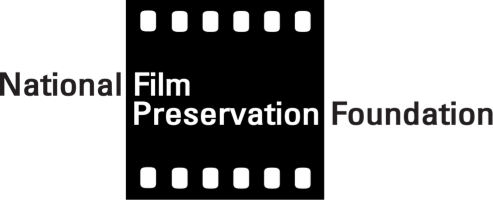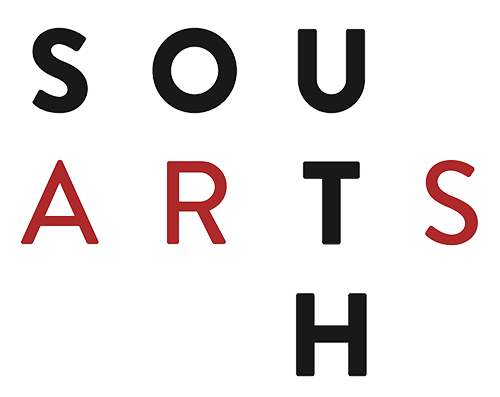Welcome Appalshop's New Archive Director!
3 months ago
Appalshop is proud to welcome our new Archive Director, Chad Hunter, back to Appalshop. Chad was a co-founding archivist of the Appalshop Archive in 2005, working with Archive founder and filmmaker Elizabeth Barret. His early work at Appalshop included the preservation of numerous films, including the National Film Registry–named documentary The Buffalo Creek Flood: An Act of Man, and re-releases of June Appal Recordings of Buell Kazee and Ralph Blizard. He also helped secure a National Endowment for the Humanities “We the People” grant to launch the Archive's preservation of film, video, and audio. He presented preserved materials from the Appalshop Archive across the country. He learned to play clawhammer banjo at the Cowan Creek Music School, and also had his own radio show on Appalshop's community radio station, WMMT. After many years away, he rejoined the Appalshop Archive after the flood in July 2022 to help rescue and preserve the collections.
Chad was kind enough to answer some questions for our newsletter so our supporters can learn even more about his storied relationship to Appalshop, archival preservation, and some of his favorite pieces in the Appalshop Archive.
After many years away, what brought you back to Appalshop?
CHAD: What brought me back? The flooding of Appalshop and the Archive. It was heartbreaking to see. I care deeply for the collection and the people who helped build it, and I wanted to help. After driving down from Pittsburgh to assist for several days, I was then asked to come on as a consultant, which I’ve done for the past 2.5 years to help salvage and preserve the flood-damaged collections. And I'm thrilled to now be officially re-joining Appalshop as the new Archive Director! I couldn't think of more important, meaningful work that I could be doing than this.
Can you talk about the importance and potential uses of an archive like Appalshop’s?
CHAD: Even now, with a flooded collection, we receive requests from researchers and filmmakers to access our materials, and we're often able to prioritize those materials for access. Access is the other equally important hand to preservation. Preservation is pretty useless if we aren't sharing it with the world to see and hear. One of the more fulfilling moments is when we post newly preserved footage and we see family members, friends, and fans of people in the films that comment on how happy they are to see it. That happened recently, with the announcement that our Nimrod Workman Collection at Appalshop was named to the National Recording Registry by the Library of Congress. It was wonderful to see his proud family commenting on the posts!
Do you have a favorite piece or collection of materials in the Appalshop Archives?
CHAD: That's hard. A few come to mind: I love Appalshop's music video Whoa, Mule with Lee Sexton; video and audio recordings of gospel piano player/singer Earl Gilmore; and even Whitesburg Epic, the short film shot in downtown Whitesburg with person-on-the-street interviews about the Vietnam War and with teens on how there's nothing to do around there. I also love the Pictureman Mullins photo collection from the 1930s–50s, as do most people who see it! And, it goes without saying, but the film https://www.folkstreams.net/films/stranger-with-a-camerahttps://www.folkstreams.net/films/stranger-with-a-camera is what brought me to Appalshop in the first place.
What is the one thing you wish more people knew about the Appalshop Archive or archiving in general?
CHAD: Save the originals, don't digitize them and throw the originals away! While digitizing and putting materials on the internet definitely makes them more easily accessible, those files can become corrupted, and hard drives can and will fail over time. There is no silver bullet format that's going to save something over time. The key is to keep migrating it from one format to another and make as many different copies as possible. And keep the originals! They may outlast the digital files.
Another thing I want people to know—our dream for the future is to transform the Appalshop Archive into a new Appalachian Community Archive Center where people can visit, bring their own historical items and learn how to preserve them hands-on. We're going to make it happen!
Send Chad a warm welcome (back) to Appalshop!
NOTE: Chad and the rest of Appalshop would like to extend a tremendous note of gratitude to Iron Mountain for their invaluable support of the Appalshop Archive.
For those looking to learn even more about Chad Hunter, our new Archive Director:
His previous work as an archivist includes time at musician Peter Gabriel’s human rights archive, WITNESS, in New York City, as well as George Eastman Museum in Rochester, NY, where he spent seven years as an archivist and Preservation Officer. There, Chad supervised the preservation of more than one hundred films, including the home movies of Martin Scorsese and Joan Crawford; the collection of independent filmmaker Peter Hutton; unique films of Harold Lloyd, Buster Keaton and Raoul Walsh; and dozens of actuality and animation films from the silent period. He served as an instructor and lecturer at the L. Jeffrey Selznick School of Film Preservation in Rochester, as guest lecturer at the Cinemateca Brasileira in São Paulo, Brazil, as a visiting archivist at the Danish Film Institute in Copenhagen, Denmark, and as a consultant for the National Film and Sound Archive of Australia.
As part of his active involvement with the Association of Moving Image Archivists, Chad served as co-chair of its Small Gauge and Amateur Film Interest Group, supervised AMIA’s first oral history with the late technology collector Alan Katelle, and more recently helped organize and host AMIA’s mini-symposium on audiovisual archive disaster preparation and response.
He was Assistant Director on the feature experimental film Passio, which debuted in North America at the 2007 Tribeca Film Festival. He is founder and director of the Pittsburgh Silent Film Society & Festival, co-founder of International Silent Movie Day (lauded by Martin Scorsese as needed film activism), and co-founder of Home Movie Day and the nonprofit archival organization the Center for Home Movies. His work in film exhibition includes serving as manager of the arthouse cinema The Little Theater in Rochester, NY, as Executive Director of the historic, nonprofit Hollywood Theater in Pittsburgh, and as Senior Director of The Rangos Giant Cinema at Carnegie Science Center, Pittsburgh's most-visited museum.

















